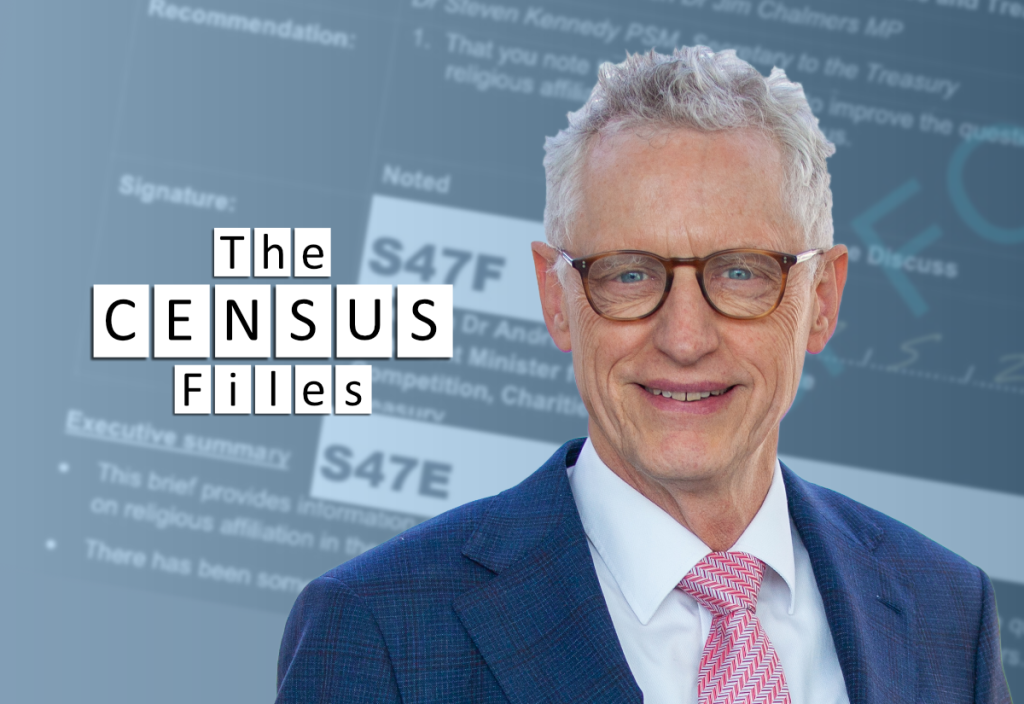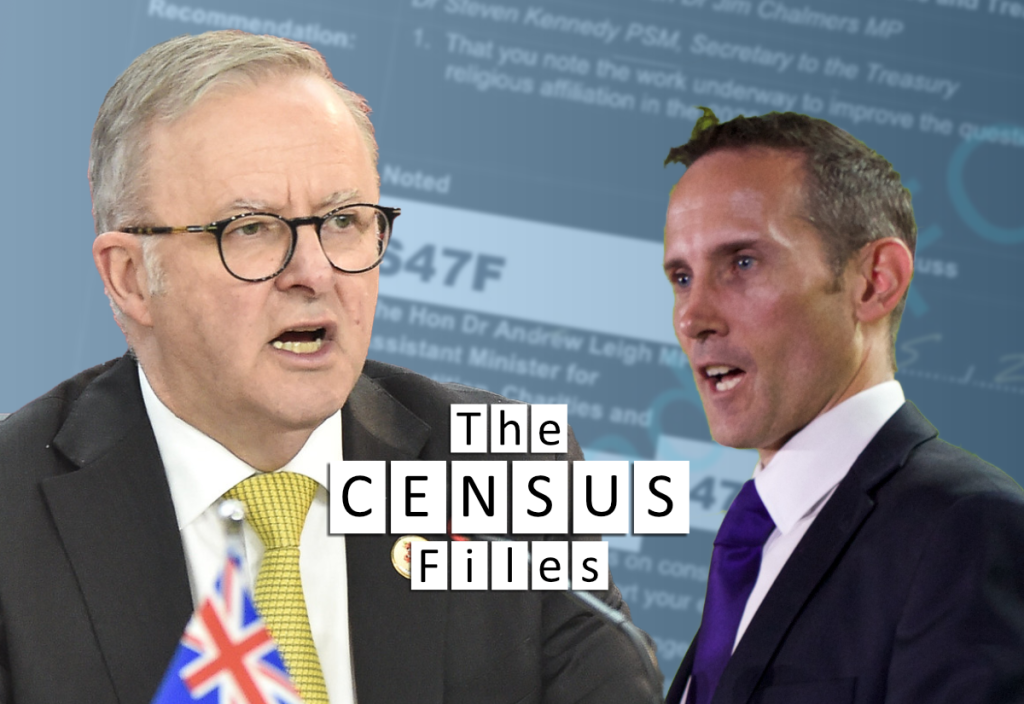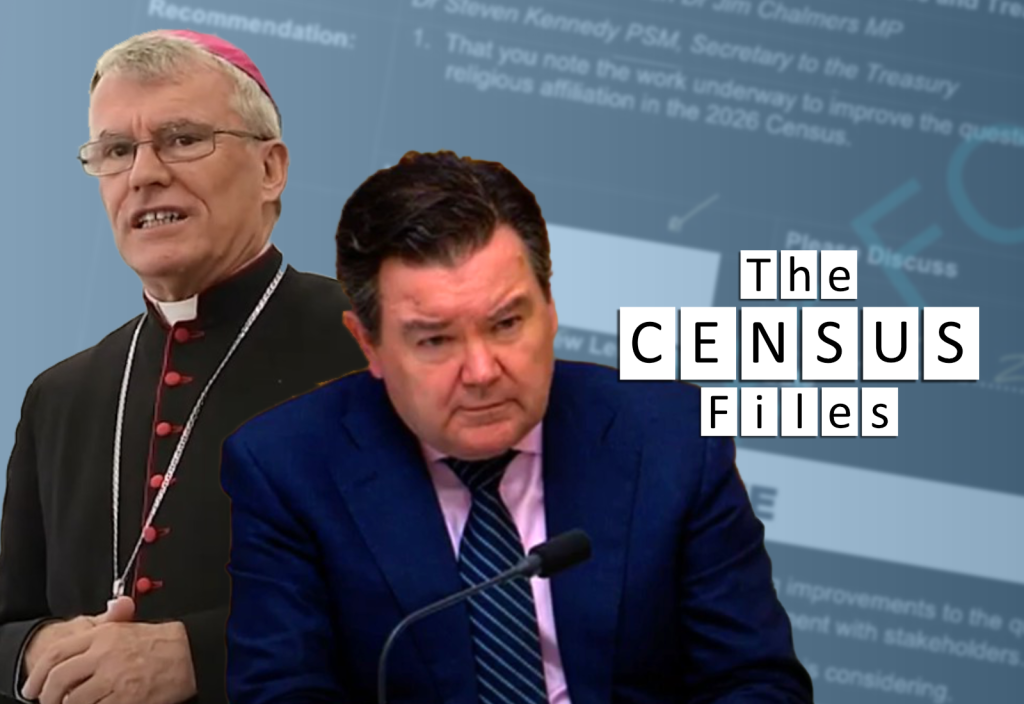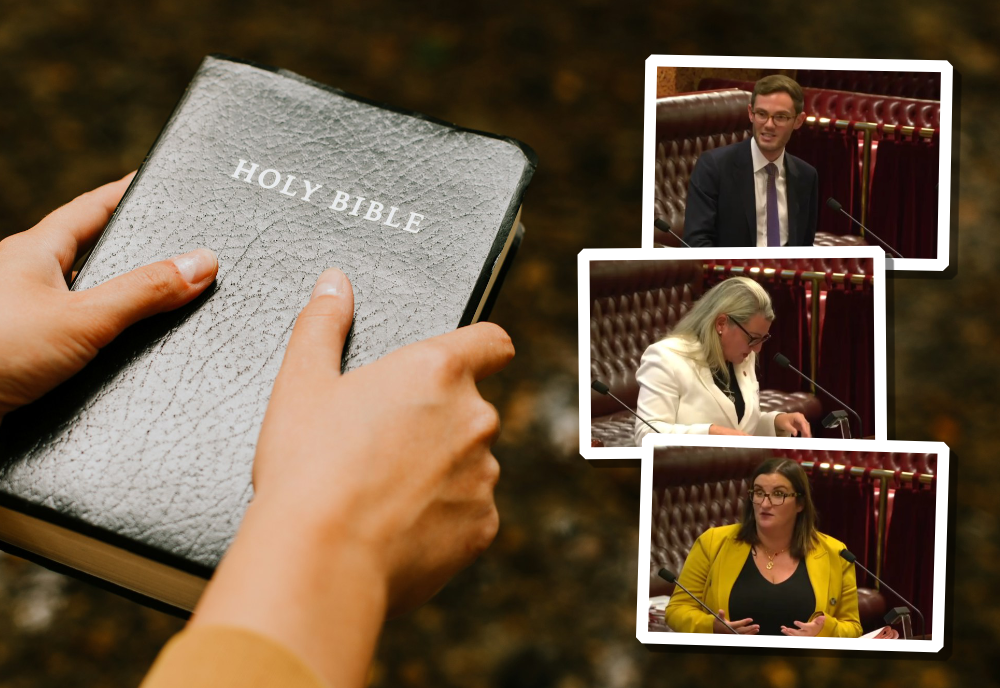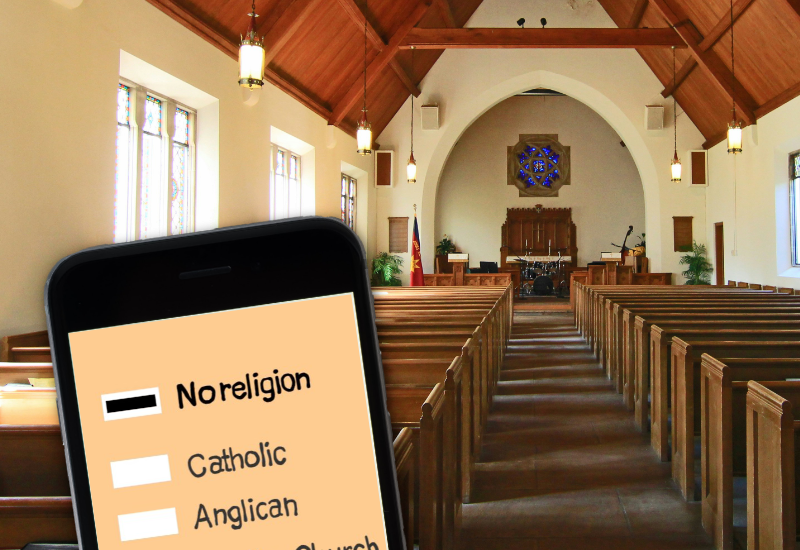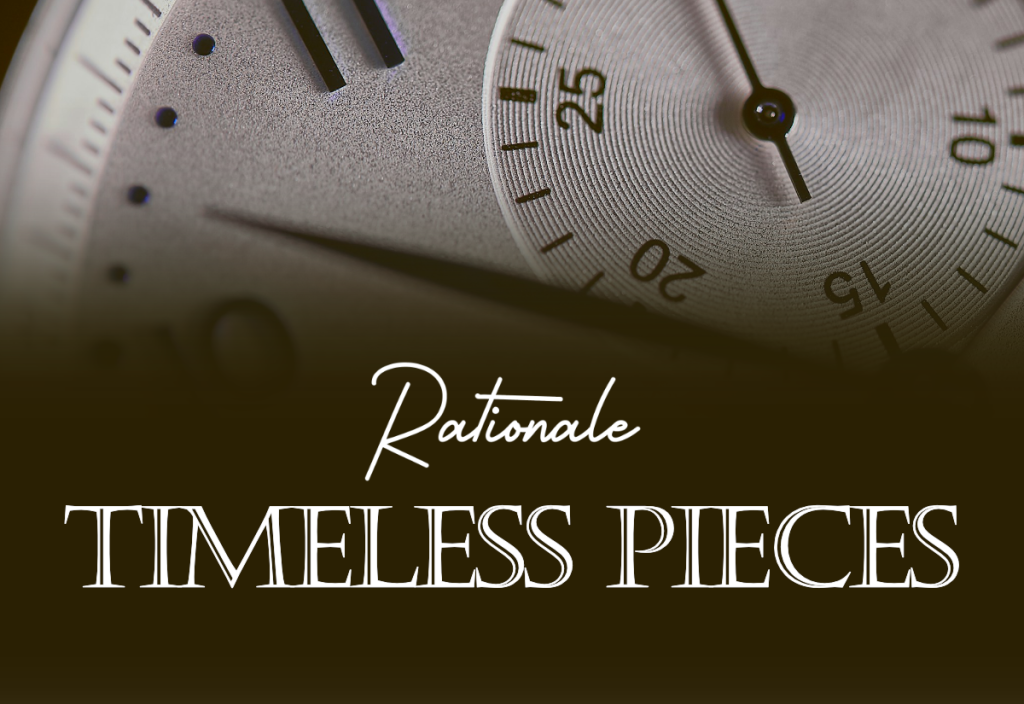The 2021 census reveals a society in transformation. In terms of religion, the earth is shifting beneath our feet.
Rocketing to 38.9 per cent, ‘No religion’ has increased from 29.9 per cent in 2016, and 22.3 per cent in 2011. In one decade, non-belief has nearly doubled!
In contrast, Christianity is in freefall, dropping to 43.9 per cent from 61.1 per cent in 2011 – a drop of nearly one-third over the same period.
Taken at the height of the COVID pandemic, the result gives lie to the persistent myth that in times of trouble we turn to faith.
Further, the figures understate the percentage of non-believers because the question – ‘What is the person’s religion?’ – assumes a positive answer, capturing many with only a loose or historical affiliation with a faith.
According to a McCrindle survey, only eight per cent of Australians attend church on a regular basis. As documented in the Religiosity in Australia series, written by Neil Francis and published by the Rationalist Society of Australia, seven out of 10 Australians say religion is not personally important to them.
Looking forward, we can expect the trend to continue. In a decade from now, we should not be surprised if non-believers outnumber Christians by as much as two to one.
Our policy makers will need to address a seismic shift in a country with a legacy of Christian institutions. I offer a number of suggestions for consideration.
Tax breaks for ‘advancing religion’ can no longer be regarded as being of clear public benefit. Given the appalling performance of many faith groups in recent years, the benefit of advancing specific belief systems is dubious to say the least, and not well supported by the public.
As far back as 2016, according to Ipsos, 64 per cent of Australians favoured removing tax-free concessions to churches. Compulsory annual financial reporting would also assist in countering the exploitative use of religion for personal gain.
In recent years, we’ve witnessed gross financial mismanagement by charity groups (both religious and non-religious), failing time and again to provide an acceptable proportion of donations to the nominated cause.
With our major faith group in sharp decline, it’s time to take an evidence-based approach to identifying areas of need, with a view to providing no-strings-attached support, along with strict financial reporting.
Pleasingly, the Albanese government has already announced it would be opening school chaplaincy to secular workers. But the structure and legacy of mostly Christian chaplains remains. How about properly funding trained counsellors, regardless of their faith?
Our policy makers will need to address a seismic shift in a country with a legacy of Christian institutions.
Scripture classes – such as those conducted during class time under the Special Religious Education program in New South Wales and the Religious Instruction program in Queensland – represent a flagrant waste of curriculum time in our public schools.
These classes are used by faith groups with the express purpose of evangelising to children. Classrooms are split and the normal curriculum halted, even for those not participating. Year after year, fewer parents are opting their children in. It’s a no-brainer. These programs need to be scrapped.
Most independent schools are religious, even if only nominally. Given the increasingly irreligious nature of the public, governments should consider how to fund and manage the independent school network in the future.
Politicians can now stop fearing the power of the religious vote and look to the non-religious vote as an untapped opportunity. Clearly, religious lobbyists such as the Australian Christian Lobby and Freedom for Faith stand for a vanishing minority of Australians.
To help the voices of non-religious Australians be heard in our parliaments, politicians could set up parliamentary friendship groups. Britain, for example, has a Parliamentary Humanist Group which meets regularly, incorporating members of all parties.
About 10 million Australians selected ‘No religion’ at the census last year. Some are lapsed Christians, some are ‘spiritual but not religious’ and some are out-and-out atheists. More investigation into the demographic should yield interesting results, which could inform public policy.
Our increasingly diverse demographic calls for a liberal society in which the free exercise of religion and non-belief remains available to all. We should be advancing the case for a moderate secularism.
Religious freedom is indelibly connected to the concept of the separation of church and state. It’s about allowing the free exercise of religious beliefs in the public sphere, as long as they do not infringe upon the free exercise of others. Religious freedom should not become a Trojan horse for discrimination.
Accompanying the decline of Christianity has been the culture-war battle to preserve religion’s influence. And that battle has played out over issues such as marriage equality, legalising abortion, voluntary assisted dying (VAD), and discrimination in employment in religious bodies such as schools. Clerics and conservative pundits arguing for the right to expel gay students or to sack divorced teachers only works to galvanise community attitudes against faith.
Employees should be required to hold religious beliefs only if they form an inherent requirement for the role. In a country with a shortage of teachers, belief in the virgin birth should not be a requirement to teach mathematics. Efforts to restrict the freedom of conscience of their employees is itself an affront to religious freedom.
Taxpayer funds should prioritise community needs for education, health and aged care over preserving religious sensibilities. And those in receipt of public funds should provide services in a way reflective of our diversity.
Looking forward, our elected representatives should pay closer heed to the secular voting bloc. The secular point of view, so noticeably absent from the media at present, may finally get fair airtime. And our country will be all the better for it.
If you wish to republish this original article, please attribute to Rationale. Click here to find out more about republishing under Creative Commons.
Photo by Matt Botsford on Unsplash




